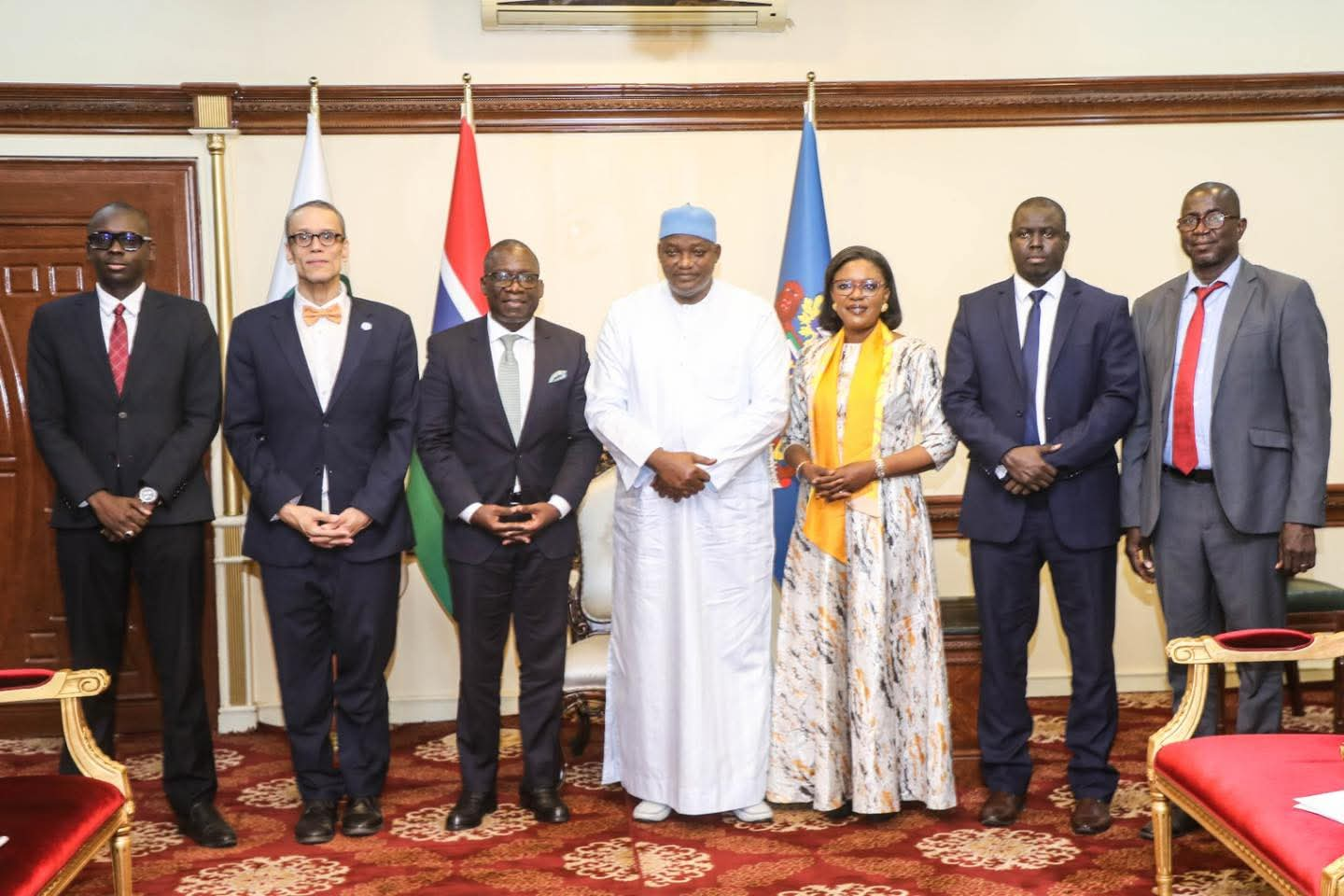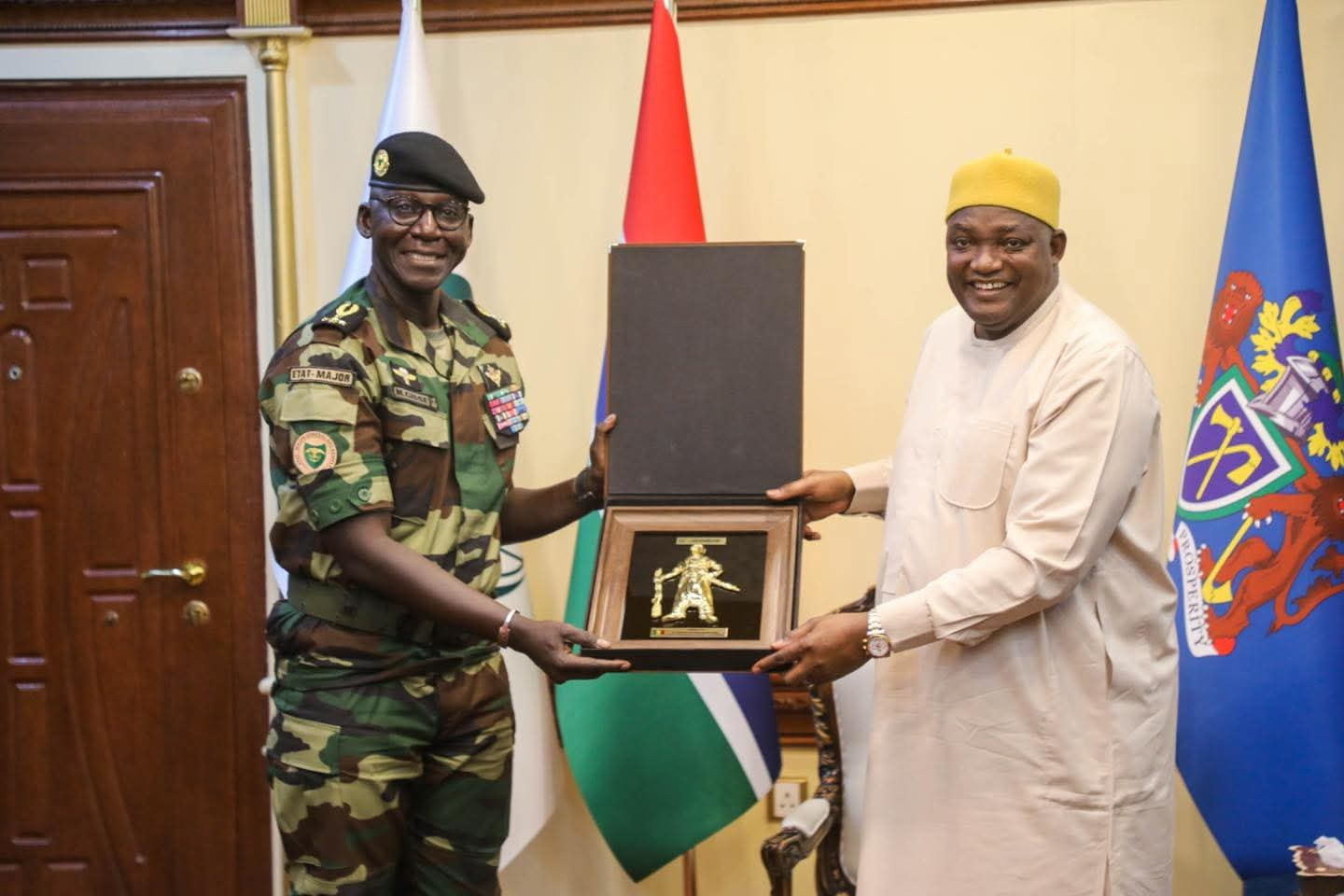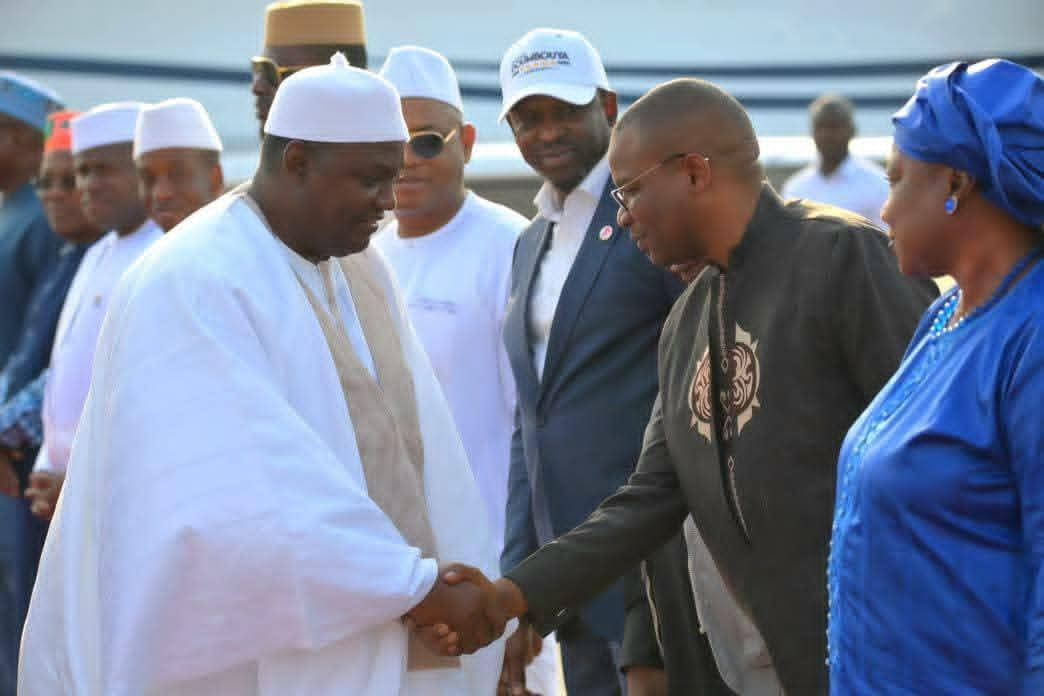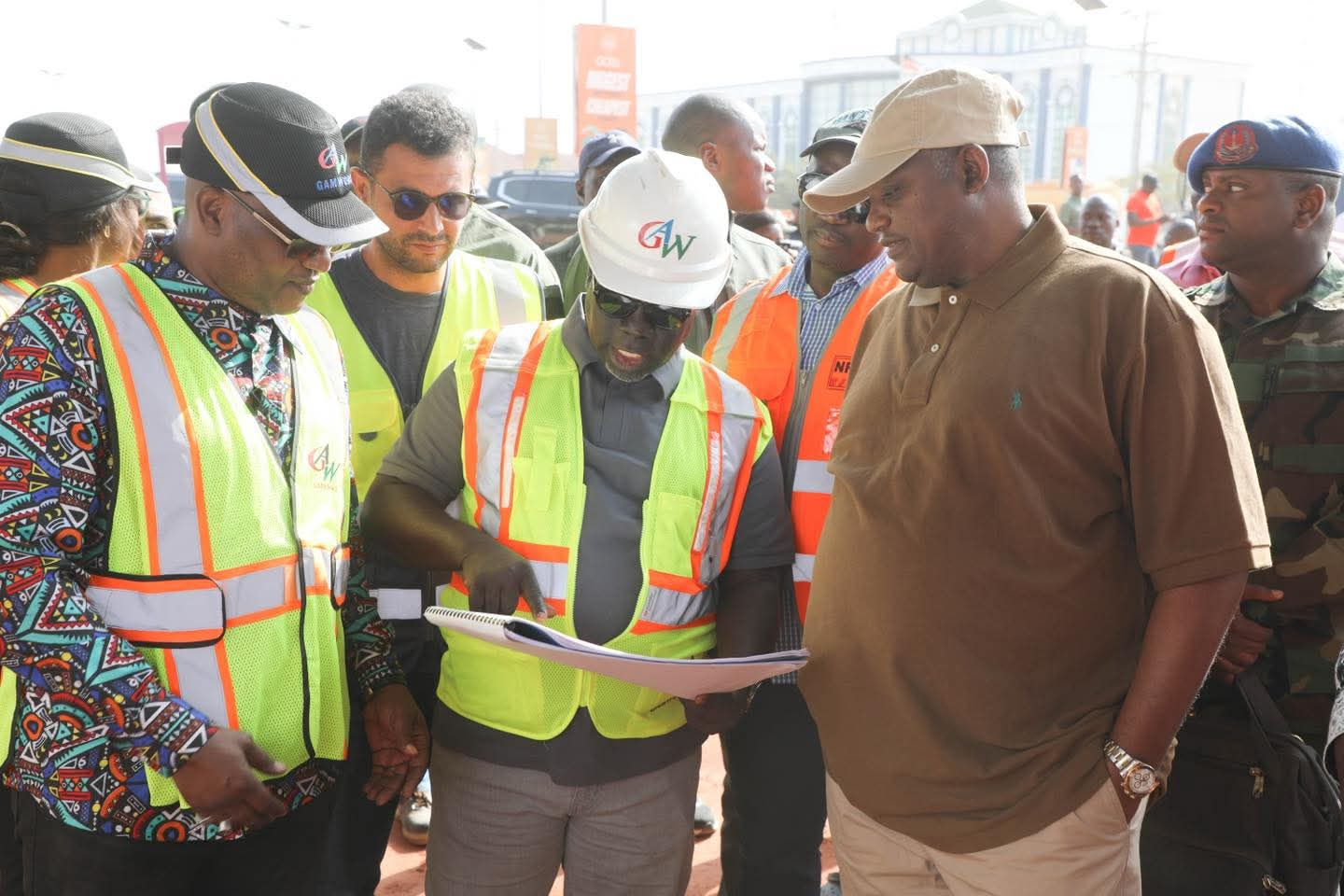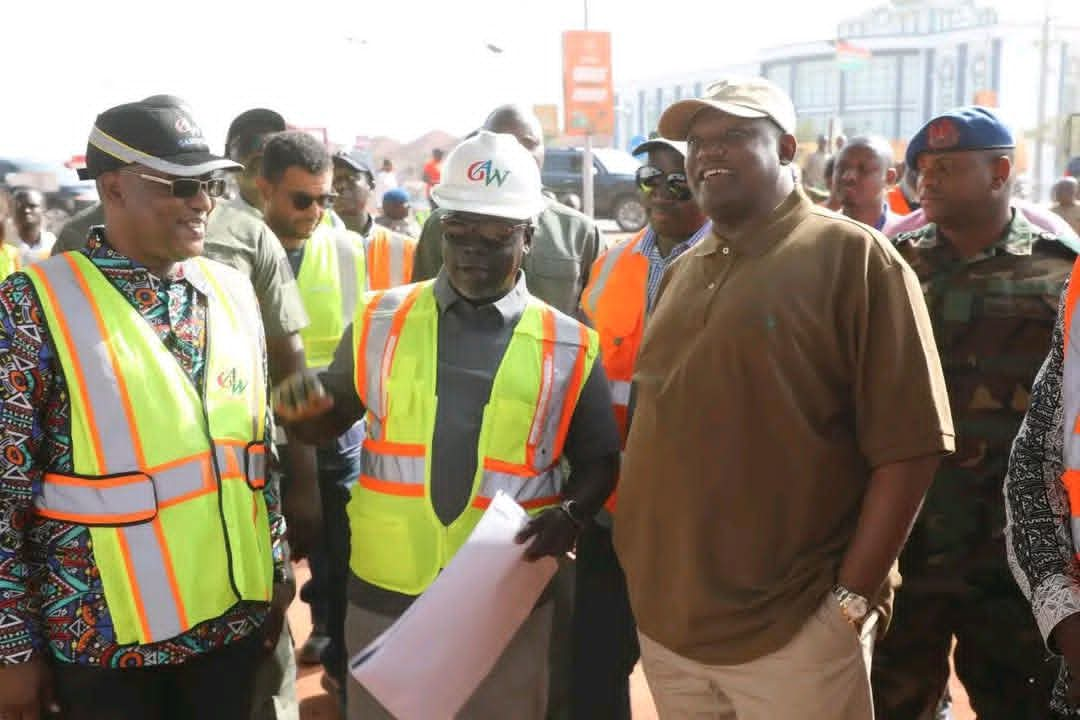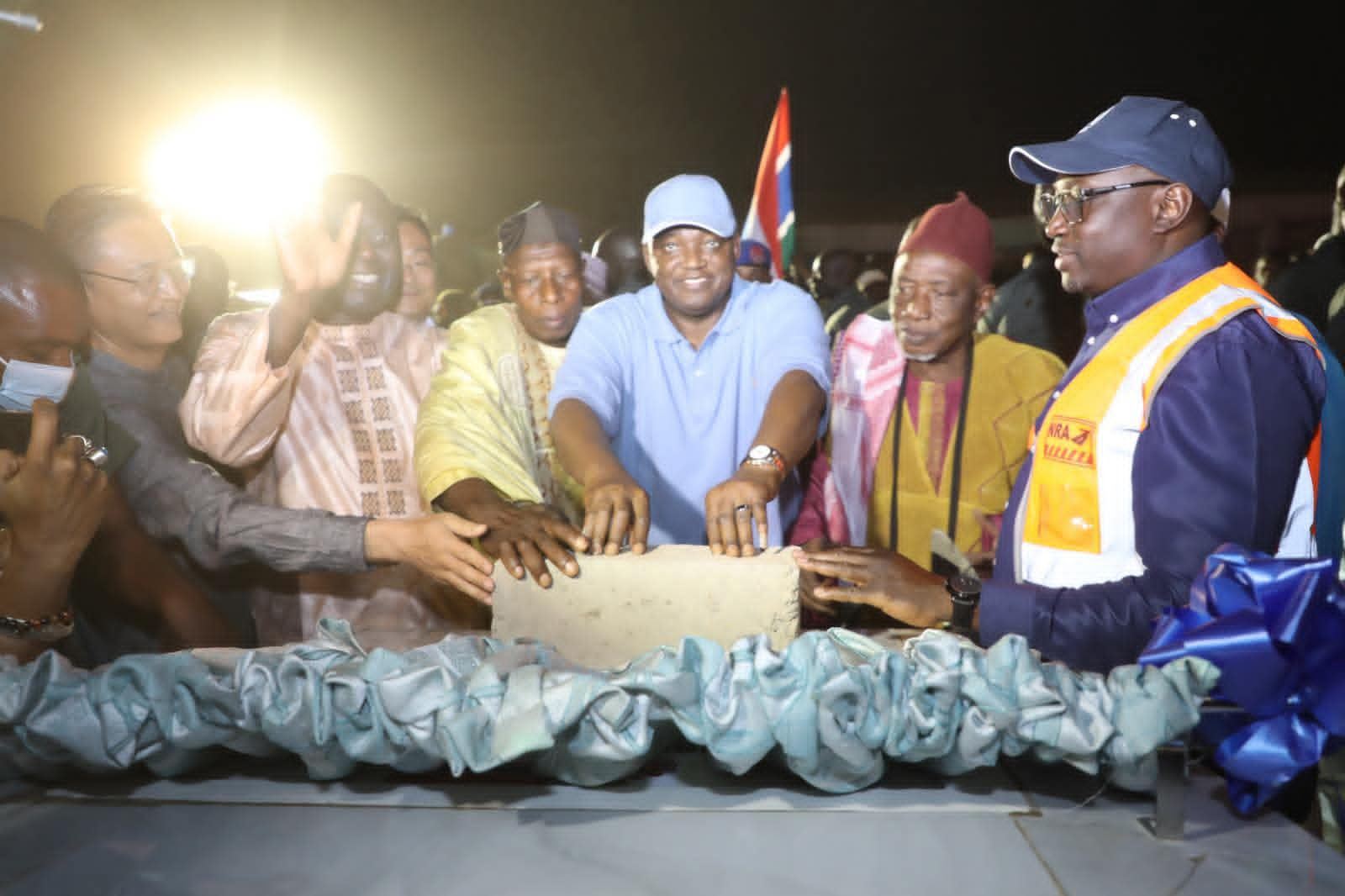UNFPA Partners with Gambian Government on Healthcare
President Adama Barrow received the United Nations Population Fund (UNFPA) Regional Director for West Africa, Dr Sennen Hounton, at the State House. Dr Hounton is in The Gambia to assess the agency's work and engage in discussions with officials to enhance collaboration and cooperation. During this visit, the President also met with the newly formed Board of Directors of the Banjul International Convention Centre, which manages the Sir Dawda Kairaba Jawara International Conference Centre and the VVIP lounge at the airport.Dr Hounton's visit aims to promote sexual and reproductive rights for women and children by evaluating the agency's efforts in The Gambia and connecting with relevant stakeholders.After his discussion with the President, Dr Hounton described the meeting as productive, noting that both parties agreed to strengthen their partnership in areas such as maternal and child health, the elimination of violence against women and girls, and access to healthcare.He reassured that the UNFPA is committed to supporting The Gambia in its goal to eliminate maternal and child mortality by 2030.In a separate engagement, the Board of Directors of the Banjul International Convention Centre paid a courtesy visit to the President to update him on the activities of the newly constituted Board, which oversees the management and operations of the Sir Dawda Kairaba Jawara International Conference Centre and the airport's VVIP lounge.After their meeting, the Chairman of the Board of Directors, Mawdo C. Juwara, expressed that the discussion provided an opportunity to inform the President about recent developments at the Conference Centre.Yankuba Dibba, the Chief Executive Officer of the Banjul International Convention Centre, shared that the new board and management have implemented the necessary policies and strategies to ensure smooth and profitable operations in accordance with legal requirements.He thanked the President and his government for their support of the BICC and pledged to ensure the centre and the airport lounge operate effectively and profitably.
Continue Reading >>
